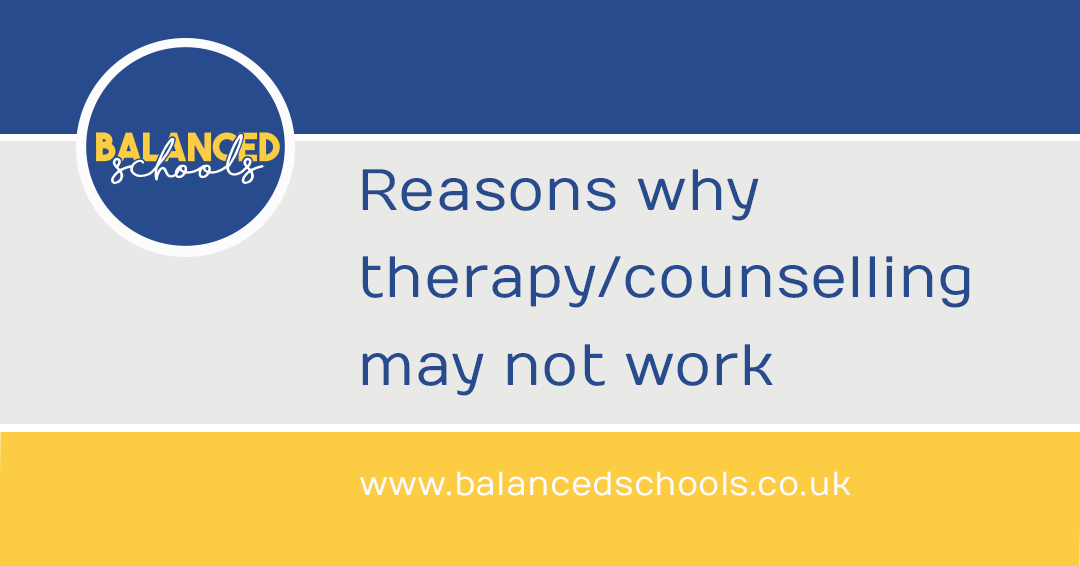
Therapy can be a very effective way to improve mental health and wellbeing but it’s not instant. It takes time and commitment. Additionally, there are barriers to it working. There are a number of reasons why therapy may not work for everyone.
Here are some of the most common reasons why therapy may not work:
- Lack of rapport with the therapist: It is important to have a good rapport with your therapist in order to feel comfortable sharing your thoughts and feelings. If you do not feel comfortable with your therapist, it may be difficult to make progress in therapy.
- Unrealistic expectations: Some people may have unrealistic expectations about what therapy can achieve. Therapy is not a quick fix. It takes time to work through issues and make changes. If you expect to see results immediately, you may be disappointed.
- Resistance to change: Some people may be resistant to change. This can make it difficult to make progress in therapy. It is important to be open to trying new things and to be willing to step outside of your comfort zone.
- Underlying medical conditions: Some mental health conditions may be caused by underlying medical conditions, such as thyroid problems or brain tumours. If you have an underlying medical condition that is causing your mental health problems, therapy may not be effective until the medical condition is treated.
- Medications: Some medications can interfere with the effectiveness of therapy. If you are taking any medications, it is important to talk to your doctor about whether they could be interfering with your therapy.
What to do if therapy is not working
If you are in therapy and you feel like it is not working, there are a few things you can do:
- Talk to your therapist: The first step is to talk to your therapist about your concerns. They may be able to make adjustments to your treatment plan or refer you to a different therapist.
- Get a second opinion: If you are not comfortable talking to your therapist about your concerns, you may want to get a second opinion from another therapist.
- Take a break from therapy: Sometimes, it can be helpful to take a break from therapy. This can give you some time to reflect on your progress and to decide whether therapy is right for you.
If you are struggling with your mental health, therapy is a great option for many people, but it is not the only option. There are other resources available, such as medication, support groups, and self-help resources.
